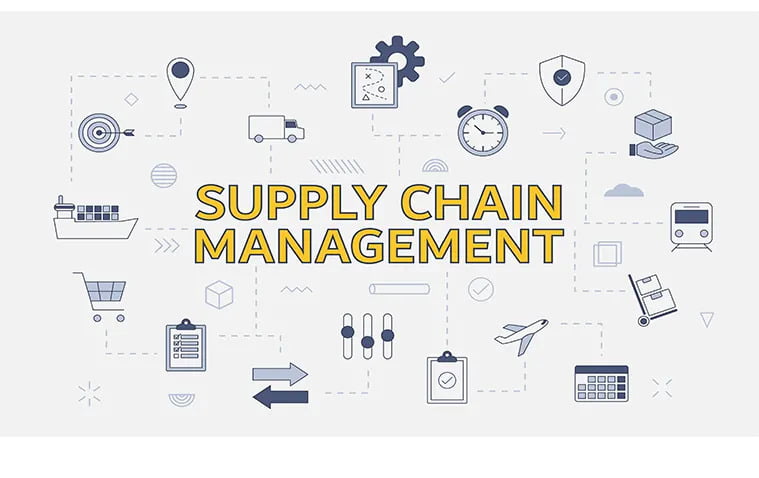Recently, the Ministry of Agriculture and Farmers Welfare under the Government of India passed a notification for a legislature that made for a case of traceability in the agricultural protection product supply chain. It made it necessary for manufacturers of insecticides, pesticides, and other agricultural chemicals to print QR codes on the product that can help relevant stakeholders leverage the data for traceability of crop protection products. The legislation was a move intended to make traceability a vital and key element of the agrochemical sector. But it wasn’t a sudden out-of-the-box movement. In fact, India was late to the party.
The world’s food system has undergone considerable evolution spearheaded by the rapid need for diversified cuisine and an increased focus on healthy recipes. But, making sure that the constituents of a healthy diet are truly safe, most consumers today want verifiable information about origins and processes carried out right from the grassroots level of farming to harvesting, storage, processing, and supply to retailers. The habits of finding the origin and verifying credibility extend not just to the raw materials or crop harvesting habits but also on the fertilizers and other agrochemicals deployed in the food supply chain.
Agrochemicals play a vital role in ensuring healthy yields for farmers and protecting crops from natural agents like insects and microbial organisms. They comprise a significant part of the global food supply chain with studies predicting the agrochemical market worldwide to grow into a size of over USD 246.1 billion by 2025.
A rising middle class, improved internet penetration, and digital literacy are changing the food habits of Indian consumers as well. As with the rest of the world, Indian consumers too now are beginning to demand healthy and safe food grains and other dietary constituents. This, in turn, made traceability a key constituent for agrochemical companies that make products for crop protection in India. Besides, the sector also stands to benefit a lot by ensuring a transparent and traceable end-to-end supply chain.

Let us explore some of these benefits:
Fight Counterfeit Products
The Indian agrochemical industry is expected to reach a market size of USD 8.1 billion by 2025 according to the Federation of India Chambers of Commerce and Industry (FICCI). Nevertheless, this may not be sufficient to meet the need for crop protection products from the agricultural sector in India, which is one of the world’s largest by all measures. The result is the exponential growth of counterfeit products in the agrochemical space which win interest solely based on fooling consumers with genuine appearance but in the long-term, cause irreversible damage to the crop owing to harmful constituents. Bringing onboard traceability in the end-to-end supply chain can help agrochemical companies eliminate threats from counterfeits. They can enable consumers to scan a QR code on the packaging to verify the authenticity of the product as well as information about its source.
Improved Time to Market through Automation
With the implementation of traceability solutions, agrochemical companies have access to real-time data points across every stage of production. This enables them to create automated processes across their warehouses and distribution centres, further enhancing the speed at which goods reach the market from their manufacturing units. The data can be synchronised with information systems that handle even vendor communications to ensure that every stakeholder in the end-to-end agrochemical supply chain is made an active contributor to the product’s success.
Cost Efficiency
By promoting traceability using technology, agrochemical companies can better manage inventory and reduce costs across the supply chain. With a more real-time view into the movement of goods from warehouses and distribution points, they can achieve improved visibility and forecast efficiency of demand. This allows them to plan production cycles accordingly and ultimately helps in reducing operational costs significantly and eliminating wastage.
Improved Customer Experience
Every sales unit for a business can be made traceable with unique data about the stages of manufacture and processes it has undergone before ending up on a retail store shelf. Leveraging this data for marketing and sales can unlock new experiences for customers with brands being able to reduce order errors, ensure faster shipments, and empower better product transparency. This will increase the consumers’ trust, which can further be converted into connected loyalty programs and campaigns for better sales conversions in the future. In the event of recalls, the effect on consumers can be minimised as brands can identify zones or cities where a batch of products with potential defects have been shipped for sale and target localised recalls as opposed to nationwide recalls.
End-to-end supply chain efficiency is key for modern agrochemical companies to meet the expectations of a population being increasingly conscious of their health and safety. Traceability has the power to redefine the fortune of agrochemical industries with a long list of benefits from which we have explained a few here.
Get in touch with us to explore this and more benefits your agrochemical business can endow itself by promoting traceability powered by technology in the supply chain.






